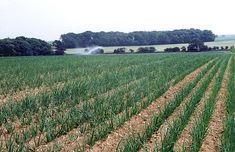
Organic farmers may strip themselves of their labels and opt out of their current standards to escape the perils of the recession, with government support.
Organic farmers have asked the government for permission to take a “holiday” from strict organic standards in an attempt to survive the recession.
Organisations including the Soil Association have asked DEFRA secretary of state Hilary Benn for a break from regulation standards following a dip in sales of organics.
Sales of organic food slumped 10 per cent in the 12 weeks up to the end of November, according to the latest TNS data, despite a six per cent rise in overall food sales.
They want their members to be able to use conventional animal feed instead of organic food concentrate which costs twice as much, relaxing the rules for an indefinite period. Average organic feed prices are £320 a tonne compared with £160 a tonne for conventional feed.
The plan, which is also supported by Organic Farmers & Growers and the Organic Food Federation, would still oblige farmers to follow other organic tenets such as low stocking densities, minimum use of antibiotic treatments on animals and no use of fertilisers.
But the 5,000 UK organic farmers would then give up the right to label their food “organic”. The aim is to give farmers some leeway during the harsh economic climate.
The move, which comes as 400 new organic farmers are about to enter the market, has been condemned by the Organic Research Centre, which fears that organic “holidays” will confuse shoppers and lead to a further sales slump.
Richard Sanders, a spokesman for the centre, said: “Has UK organic agriculture descended from high principle to flip-flop market tracking? Any proper organic farmer should not be exposed anyway to the vagaries of the feed market because they are supposed to be growing their own on the farm.”
Phil Stocker, director of farmer and grower relations at the association, said: “We have seen a dip in organic sales and opportunistic buyers have drifted away, especially from beef, lamb, pork, eggs and poultry.
“We are also getting close to a point where there is not much difference in prices for organic and conventional produce. Many businesses are struggling and suffering, and we are trying to find a solution acceptable to everyone,” he said.
A spokesman for DEFRA said it was willing to consider the plan if it complied with EU rules.



